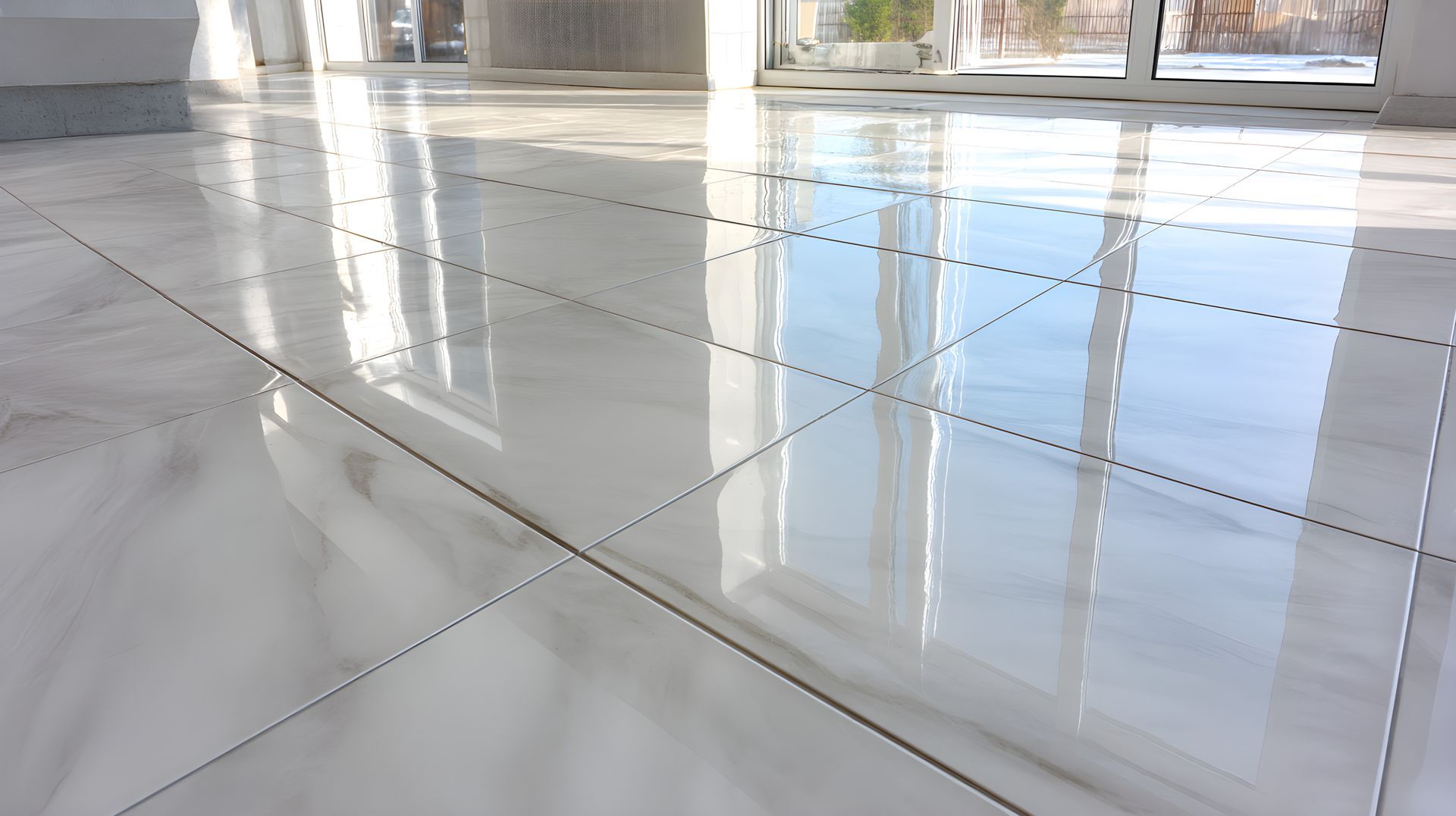Eco-friendly Cleaning Practices for Natural Stone
Natural Stone in the Home
When you chose natural stone for your home, you knew it would perform beautifully, but did you consider how to keep the integrity of the stone intact and optimize the role it plays in your home? Natural stone is a sustainable material that is durable, improves with age, and does not off-gas. Even the most beautiful and well-installed natural stone will be subject to general wear and tear from people, pets, and objects. Maintaining the stone should be a top priority.

There are many different materials and finishes within this kitchen. Each must be considered in order to keep the entire room functioning well over time. Photo courtesy of Pacific Stoneworks.
How to Choose the Right Cleaning Products

The level of quality and care given to the design of this bathroom should be of the same level to maintain it.
It is important to use the right product and process for the type of stone and specific issue you are addressing. Different stones have different characteristics and will respond differently to cleaning and maintenance.
Ask the following questions before getting started:
- What type of stone is it? Marble, granite, slate, limestone, travertine, etc.?
- Is the stone porous or nonporous?
- Is the stone resistant to scratching, etching, and staining?
- What kind of finish does the stone have? Is it polished, honed, flamed, or something else?
- Where is the stone installed? Is it on a countertop, floor, backsplash, fireplace, or somewhere else?
Also ask which of these issues are being addressed:
- Dirt and debris build up
- High-traffic areas
- Normal wear and tear
- Chemical spills
- Stains or etches from an acidic or oily substance
- Damage such as a scratch, break, or change in appearance
Whenever possible, ask these questions before the stone is even installed. That way you can plan appropriately and understand what maintenance practice will work best for your stone. For example, if you are considering a stone that is prone to stains and you cook and entertain a lot, you can either select a different stone or choose appropriate finishing options. If you have pets and small children, the durability of the stone will be a major consideration. Choosing a stone that does not damage easily will reduce maintenance issues.
Eco-friendly Maintenance Practices
Regular preventative maintenance keeps dust and dirt from building up on the surface of the stone as well as on the surrounding materials. It also prevents the stone from deteriorating and the finish from dulling. Some of the simplest maintenance practices are also the most eco-friendly.
First, keep dirt and debris from entering into the home from the outside. Install floor mats at entrances to reduce the dirt that could enter the space. Create a transition area to contain dirty clothes, shoes, and pets. This will reduce the likelihood of dirt, debris and chemicals that are present on these items from coming into contact with the stone elements and the rest of the indoor environment.

Before and after maintenance. This extreme condition could have been prevented by regular maintenance. Waiting this long adds time, resources, and often a process that is labor intensive and expensive.
Second, address the daily habits that can impact any surface material. Use coasters to prevent etching from acidic drinks. Do not set hot pans directly on the stone surface. Dust or mop regularly with a soft microfiber cloth to prevent dirt and grit from getting ground into surfaces, which can wear away the finish. Do not use mops or brooms with a rough or abrasive surface to prevent scratching. Remove excess water from shower stalls, sinks, and vanities to prevent mold, soap scum, and mildew.
Next, use natural and simple cleaning solutions as your first choice whenever possible. A pH neutral cleaner will not damage the stone surface. Small nicks, scratches, and water spots can be buffed out very gently with a 00 steel wool pad. Remove spills as soon as they happen with a mild dish soap or vegetable soap and hot water. Small nicks, scratches, and water spots can be buffed out gently with a 00 steel wool pad. Consult with your stone professional to understand the best practices for your stone.
Sealers can also play an important role in keeping the stone looking and performing well. Sealers are often applied at the fabrication stage, but can also be applied after installation.
Always make sure to check labels and make sure the products you use are safe for use on natural stone. Acidic cleaners like vinegar and lemon juice will etch the surface of calcitic stones like marble and limestone. Ammonia can also dull the finish on certain stones and has also been linked to breathing difficulties. Ammonia and bleach should never be combined—this combination creates an immediate toxic gas.
These simple eco-friendly maintenance practices go a long way in sustaining the stone. However, it is possible to go beyond this with products that have credentials that will give you peace of mind, not only for your home, but also for the planet.
Certified Maintenance Products
Environmentally friendly cleaning products have been tested to ensure they are safe and healthy for indoor environments and are certified for low and no chemical emissions. They also reduce the impact of chemicals that often end up in waste streams and water systems. These products have the following characteristics:
- Water based
- Contain no harsh chemicals
- Produce no toxic fumes
- Contain no Volatile Organic Compounds (VOCs)
- Biodegradable
- Packaging is minimal and recyclable
Select a cleaning product with a certification label from a trusted and respected green product certification labeling organization. This will ensure that the ingredients in the products meet strict requirements and standards for indoor air and water quality and contain no harsh chemicals.
Cleaning products with these types of labels are becoming more widely available worldwide. So whether you live in coastal California or are staying in your vacation home in the hilltowns of Italy, you can find a sustainable cleaning product for stone. Remember to use these types of products throughout the home so that you are addressing the stone, the system, and the indoor environment as a whole. For the optimal result, plan for and implement maintenance regularly and consistently.
Additional Resources
The post Eco-friendly Cleaning Practices for Natural Stone appeared first on Use Natural Stone.







